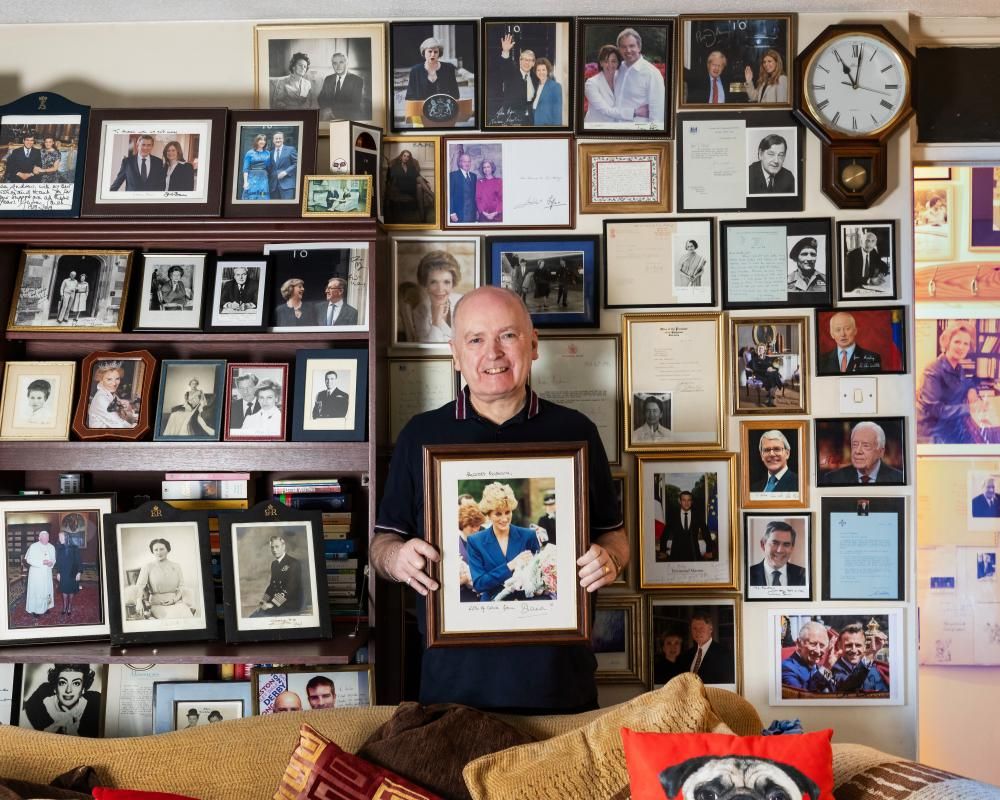
Andrew Broughton vividly recalls the initial celebrity signature he received. “It was an accidental beginning,” he shares, recalling when he was 13 years old working on a project about horror films at school. “I’m a huge fan of Hammer horror. I sent a letter to [actor] Peter Cushing via the BBC. A sizable envelope returned to me with a delightful letter. He included some signed movie stills. That’s when I became hooked. I thought: there’s no barrier to writing to anyone.”
Since then, Broughton, now 62, has amassed autographs from many prominent figures in television, cinema, music, and sports, alongside royals, politicians, and world leaders. The walls of his Derby home are adorned with framed signed photographs of the late queen, King Charles, Diana, Princess of Wales, Brigitte Bardot, John Travolta, Kylie Minogue, Elton John, Liza Minnelli, Fred Astaire, Ginger Rogers, and Muhammad Ali. Broughton complements the signatures he solicits with those he acquires through auctions and private transactions. He estimates that his collection includes around 10,000 signatures.
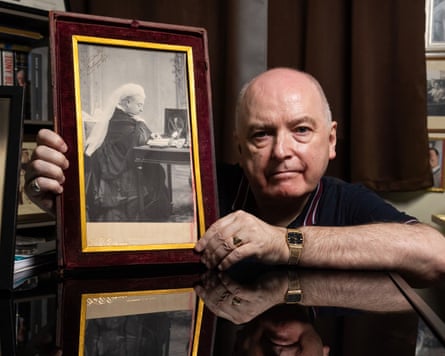
“I’ve obtained autographs from every prime minister during my lifetime up to Keir Starmer now; I have a connection in Downing Street. When there’s a change in the prime minister, I send a photo for them to sign. They know me.” These photos are prominently displayed along his staircase. He also possesses signatures from all U.S. presidents since Richard Nixon. “Donald Trump was quite challenging to obtain. I reached out to him highlighting the size of my collection, and they made an exception.”
Broughton’s enthusiasm even led him to an invitation to the wedding of the then Prince Charles and Camilla Parker Bowles in 2005. He initially contacted Parker Bowles in the 90s amidst significant public dislike towards her. “I mentioned: ‘I just want you to know that not everyone despises you.’” She responded with a letter. “She wrote back: ‘Thank you so much. It has genuinely renewed my faith in humanity.’”
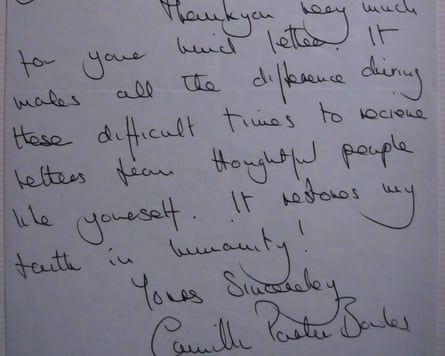
They corresponded frequently. He took his sister to the wedding, where he stood outside Windsor Castle. “She approached us immediately. I introduced myself. We shook hands, and she remarked: ‘It’s wonderful to associate a face with a name. Keep writing.’ Then the king appeared. He mentioned that he had heard a lot about me. Clearly, she had been discussing me. It was quite a surreal experience.”
While Broughton has indulged his passion from the comfort of home, Jason Thanos has adopted a more hands-on method to collect autographs. The 51-year-old, residing in Manchester, operates Movie Art Gallery, an online store that sells signed and limited edition film posters. He began collecting autographs for pleasure in his 20s after seeing Matthew Perry and Minnie Driver exit the Comedy theatre in London. He only commenced selling autographed memorabilia after being overwhelmed with requests from friends for their signatures.
He travels to film festivals globally, attends premieres, and waits outside luxury hotels to meet some of Hollywood’s most significant stars and acquire their signatures. His collection includes autographs from Angelina Jolie, Russell Crowe, Tom Cruise, Pamela Anderson, Tom Hanks, and Robert De Niro. His most treasured signature came from Roger Moore, whom he met on multiple occasions. “Every time I encountered Roger Moore, I’d say: ‘Oh man, you’re my favorite Bond.’ He’d reply: ‘Sean Connery told me that’s what you say to him.’”
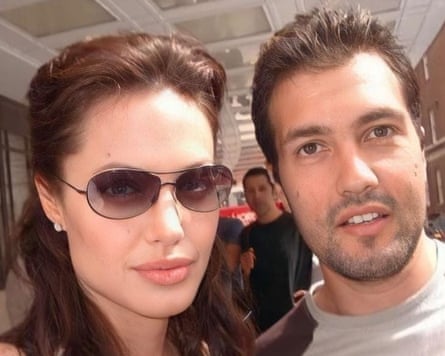
It took him five days to secure Sylvester Stallone’s autograph. He traveled to the Rome film festival, where the action star was introducing his new movie, Bullet to the Head. “I was able to finally get him on the last night. I approached him politely. Because I wasn’t being disruptive, he gave me a fantastic signature, along with the message: ‘keep punching’ [a nod to Stallone’s role as boxer Rocky Balboa].”
The autograph market can be quite profitable, particularly when associated with memorabilia. The highest price ever paid is believed to be George Washington’s personally annotated edition of the US constitution and Bill of Rights, which was sold at auction in 2012 for $9.8 million (£7.3 million). A rookie trading card signed by basketball icon Stephen Curry went for $5.9 million (£4.4 million) in 2021, while a white Fender Stratocaster, autographed by 19 rock legends, including Mick Jagger, Keith Richards, and Eric Clapton, fetched $2.7 million (£2 million) in 2005 to aid tsunami survivors from the 2004 Indian Ocean tragedy. The Double Fantasy album that John Lennon signed for his killer, Mark Chapman, was sold for $900,000 (£673,000) in 2020.
Thanos prices his signed posters between £75 and £4,000. He once earned £5,000 for a jacket signed by Arnold Schwarzenegger. However, he admits that he tends to spend more than he makes from autograph collecting: factoring in travel and lodging, he approximates around £4,000 for attending film festivals like Cannes or Toronto. Yet it goes beyond just acquiring autographs. “I get to preview films months before they’re released. I’m a genuine enthusiast. I can discuss every film, genre, and actor because it’s my passion. I adore cinema immensely.”
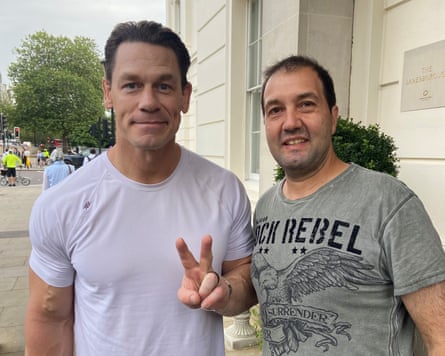
Once, it took him five days to secure Sylvester Stallone’s autograph. He traveled to the Rome film festival, where Stallone was premiering his latest movie, Bullet to the Head. “I managed to get him on the final evening. I was extremely polite. Since I wasn’t being rude, he signed beautifully, inscribing: ‘keep punching’ [a reference to Stallone’s role as boxer Rocky Balboa].”
Selling autographs can yield substantial profits, particularly when linked to memorabilia. The highest price ever recorded is believed to be George Washington’s personal annotated copy of the US constitution and Bill of Rights, which was auctioned for $9.8 million (£7.3 million) in 2012. A rookie trading card signed by basketball superstar Stephen Curry sold for $5.9 million (£4.4 million) in 2021, while a white Fender Stratocaster, autographed by 19 rock legends including Mick Jagger, Keith Richards, and Eric Clapton, was sold for $2.7 million (£2 million) in 2005 to fund survivors of the 2004 Indian Ocean tsunami. The Double Fantasy album that John Lennon signed for his murderer, Mark Chapman, was sold for $900,000 (£673,000) in 2020.
Thanos’ signed posters range from £75 to £4,000. He once netted £5,000 for a jacket signed by Arnold Schwarzenegger. Nevertheless, he admits that he often spends more than he earns from autograph collecting: considering travel and accommodation, he averages approximately £4,000 to attend film festivals like Cannes or Toronto. But his passion extends beyond acquiring signatures. “I watch films that won’t be available for months. I’m a true admirer. I could tell you about every movie, every genre, every actor because it’s my passion. I love films immensely.”

The first notable historical signature is thought to belong to the Spanish knight El Cid from 1098, who signed documents using his Latin name. The hobby and business of autograph collecting surged in the 19th century, with collectors acquiring signatures from renowned individuals like authors Washington Irving and James Fenimore Cooper. Demand expanded in the 20th century as entertainment media such as cinema, radio, and television gained popularity, and nowadays, celebrities attending events like San Diego Comic-Con often charge fans for autographs and photographs.
For Clare Hodges, 56, a retail assistant from Frampton on Severn, Gloucestershire, autograph hunting has been a cherished family activity for a long time. “My dad had a collection, and I simply loved viewing it. I thought: ‘I’m going to give it a shot.’” At 13, she joined the Bucks Fizz fan club, which would send out signed photos. “My brother and I used to collect them together. He gave it up after a few years, but I kept pursuing the hobby.” She dispatches about 30 letters monthly to request autographs and enjoys visiting theaters to wait by the stage door.
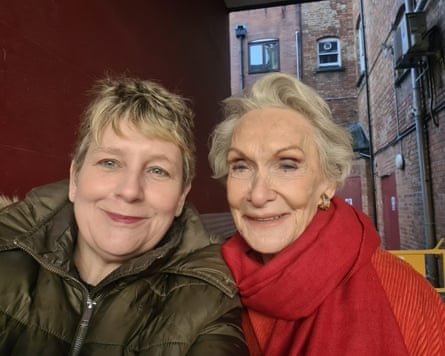
“It’s somewhat of an obsession,” remarks Hodges, who has autographs from stars including Joan Collins, Kate Bush, and Stephanie Beacham. “I enjoy meeting famous individuals. I prepare photographs [for them to sign] in advance and take them along with my Sharpies. I also attempt to snap a selfie with everyone I encounter.”
Ringo Starr, Paul McCartney, and William Shatner are among celebrities who have expressed in past interviews their refusal to sign autographs. Steve Martin previously kept business cards to give to fans who requested his signature, certifying they had “a personal encounter” with him, though he has since been seen signing. In 2018, Bryan Cranston announced on X, formerly Twitter, that he was “overwhelmed with requests and unable to continue.”
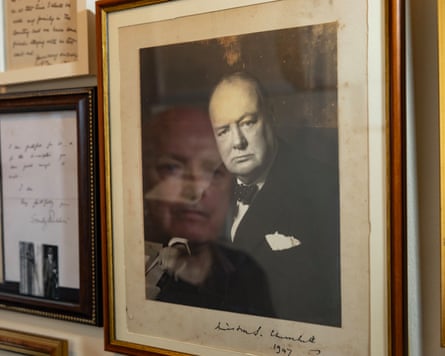
Numerous celebrities who decline to provide autographs mention concerns regarding their potential resale. In 2023, Bill Hader remarked on the Happy Sad Confused podcast that he ceased signing autographs. “I used to sign things, and then one day I saw someone with their kid asking me to sign a [Star Wars] BB-8 item at three in the morning … [They] said: ‘Move over there so he can sign it so I can sell it online.’ I thought: ‘That’s unacceptable.’”
Earlier this year, video of Manchester City manager Pep Guardiola went viral after he expressed irritation at young fans who requested his signature on memorabilia boxes. He told them: “Don’t come back; I won’t sign again. I recognize your faces. Focus on your studies and prepare yourselves; you’re young, don’t waste your time here. Do you want to spend your life doing this?”
Broughton believes that autograph hunters who subsequently sell their celebrity signatures are “detracting from the experience for genuine collectors.” However, Thanos, who indicates that his personal collection was once about 30,000 signatures before selling some off, claims he has his priorities in order. “For me, my daughter’s well-being is paramount. If I need to part with autographs to ensure she receives the finest, that’s what I will do.”

For Hodges, autograph collecting has become a means of comfort. Her mother used to wait with her outside the stage doors, but now suffers from dementia. One of her brothers passed away earlier this year. “It helps me stay grounded,” she reflects. “[It] gets me through some tough moments. The hobby brings me joy.”
When she reached out to Emmerdale actress Susan Cookson for an autograph, she shared the story of her mother’s dementia. “She sent me numerous signed photos because she felt empathy for my situation. She commented: ‘I understand what it’s like.’ She took care of her parents.”
Broughton also found comfort in the messages he receives from celebrities. “I wrote to Margaret Thatcher many times,” he says. After her retirement, “we maintained correspondence. When my father passed away, she sent a heartfelt letter of sympathy.”
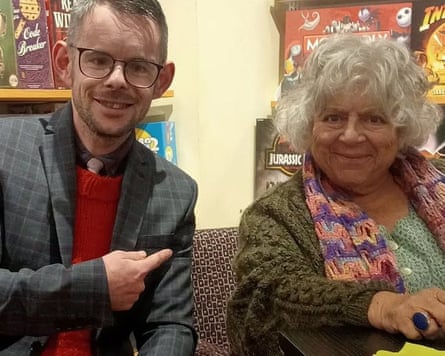
He adds: “You can develop friendships with people.” This is evidently true for Jed Higgins. The 32-year-old kitchen porter from Scarborough began his autograph hunt at 17 and has met Michael Palin, Dionne Warwick, Miriam Margolyes, Paul O’Grady, and Sharleen Spiteri.
Higgins showcases his collection on a Facebook page, as do Broughton and Hodges, with Hodges’ Autograph Collecting group gathering over 38,000 members. “I initially created it to assist others in getting involved,” notes Hodges. Broughton adds: “I receive letters from young individuals in Australia and New Zealand seeking guidance.”

He views his collection as more of a historical archive. “I’ll be significant to historians for years to come. My home lacks wallpaper; it’s entirely filled with signed photographs of famous personalities.” Portions of his collection have been exhibited at the Derby Museum & Art Gallery. “It’s gratifying to share my accomplishments with others.”
All agree, there’s little that compares to the thrill of receiving a glossy photo with a personalized message in the mail or an autograph penned with joy. It justifies all the time spent waiting. “It’s not simple,” Thanos admits. “It requires significant dedication. But when you achieve the result, the satisfaction and adrenaline are unparalleled.”

